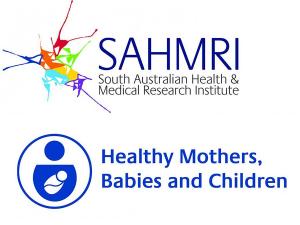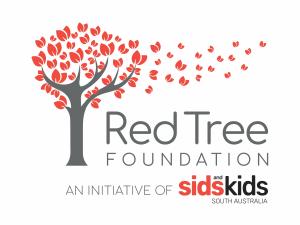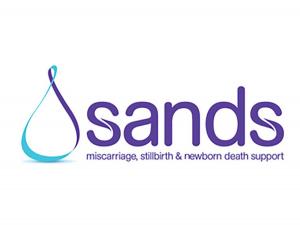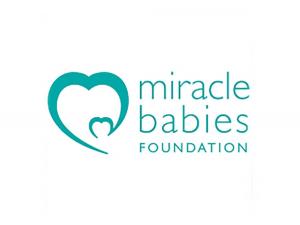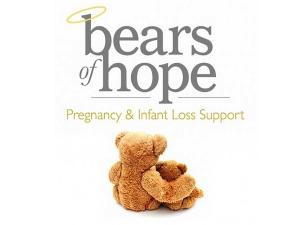Men's grief following pregnancy loss and neonatal death
Every year, millions of families worldwide experience the loss of their baby before or shortly after birth. In Australia, one in four pregnancies ends in miscarriage, six babies per day are stillborn and up to 1000 babies lose their fight for life in the Neonatal Intensive Care Unit (NICU) each year.
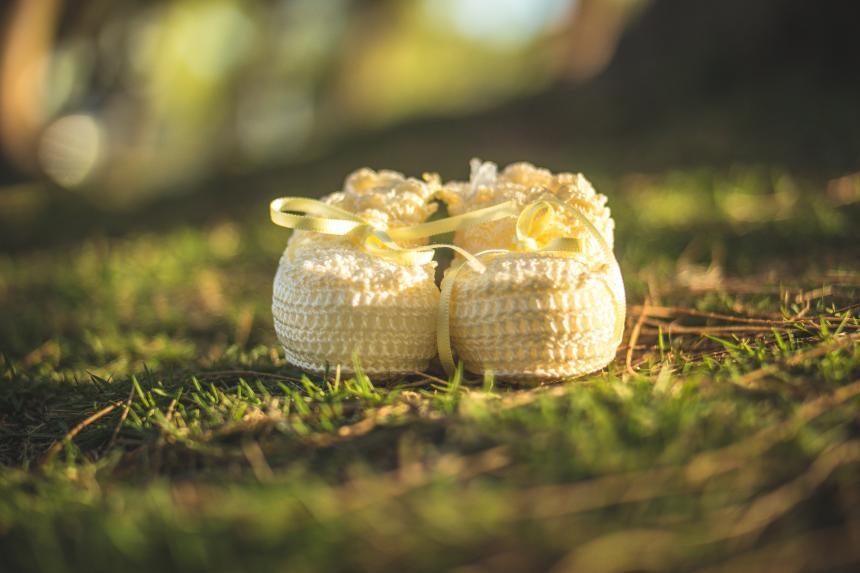
Although care and support services for grieving parents and families have improved in the last few decades, fathers frequently report feeling as though they are the “forgotten mourners” following the loss of a baby, and carry the responsibility to support their female partner and family. Historically, there has been limited research into men’s experiences of grief following a loss and their subsequent supports needs. Our research aims to improve the understanding of men’s grief and bereavement following pregnancy loss and neonatal death to inform bereavement care guidelines and support services for fathers.
Latest research
- Qualitative study on men's experiences of grief and support following termination of pregnancy for life-limiting foetal anomalies, published in the Journal of Clinical Nursing.
- Quantitative study on the factors contributing to men's grief following pregnancy loss and neonatal death, published in BMC Pregnancy and Childbirth.
- Research note on men’s experiences of returning to work following pregnancy loss and neonatal death, published in Community, Work and Family.
- A Systematic review on men’s grief following pregnancy loss and neonatal death, published in BMC Pregnancy and Childbirth.
- Interviews with men and service providers following miscarriage and stillbirth, published in Midwifery and Death Studies.
Latest media
- Invited interview and recommendataions for the Baby Loss Project, a training program for worksplaces
- Featured in the Autumn Edition of the Australian Fatherhood Research Bulletin
- Article for Westpac Wire
- Blog post for the BMC Series
- Podcast interview for Two Shrinks Pod
Studies & publications
Men's grief and support after neonatal death
In 2020, we completed interviews with ten men who completed our nationwide survey and experienced a neonatal death. This group of bereaved parents have been particularly under-represented in the research literature to date.
Findings indicated that grief was a multidimensional experience for fathers, with expressions of grief including strong feelings of anger and guilt and the manifestation of grief in physical symptoms. Fathers who could access the support they required found this to be beneficial. Overall, however, supports were perceived as inadequate in variety and availability, with more follow-up support from the hospital desired.
Factors contributing to men's grief following pregnancy loss and neonatal death
In late 2019, we surveyed over 250 Australian men on their experiences of grief following pregnancy loss and neonatal death to further explore men’s experience of grief and the factors that contribute to grief.
Findings indicated that men can experience high levels of grief regardless of the baby’s gestational age, requiring acknowledgement and validation from all healthcare professionals, family/friends, community networks and workplaces. Tailored information and support are also needed to help address male-specific needs, such as balancing a desire to support and be supported. Strategies to support men should consider grief styles and draw upon existing father-inclusive practice recommendations
Men’s experiences of grief and support following termination of pregnancy for life-threatening foetal anomalies
In 2020, we completed interviews with ten men who completed our nationwide survey and experienced a termination of pregnancy for foetal anomaly (TOPFA). This group of bereaved parents have been particularly under-represented in the research literature to date.
Findings indicated that TOPFA is an extremely difficult experience for men, characterised by emotional reactions of shock and grief, challenges in decision-making, and perceived stigma surrounding termination of pregnancy. These findings provide further support for a need to broaden the focus of healthcare systems toward family-centred and father-inclusive views of pregnancy and childbirth to acknowledge fathers’ central role and support them in addressing their grief following TOPFA
Men’s experiences of workplace leave
In September 2019, the Australian Government announced new policy which will provide parents with up to 12 months of unpaid leave following a stillbirth. In our national survey, we asked men questions about their experiences of leave provisions and support upon their return to work after a loss.
This research recommended a national, standardised approach to leave provision and additional support to ensure men’s grief is recognised and adequate support is provided upon return to work.
Read full paper Read media article
Systematic review
To develop a comprehensive understanding of men’s grief, we have reviewed the literature on men’s experiences of grief following pregnancy/neonatal loss published in the last 20 years, looking at two research questions:
- What are men’s experiences of grief following pregnancy loss or neonatal loss?
- What are the predictors of men’s grief following loss?
The findings were presented at the Perinatal Society of Australia and New Zealand (PSANZ) 2019 Congress on the Gold Coast, and the 2019 International Stillbirth Alliance Conference in Madrid, Spain.
Read full paper Read blog post
Interviews with men
An Australian-first interview study on men’s experiences of support following pregnancy loss (including miscarriage and stillbirth). Our results suggested that men have highly individualised experiences of grief and varied support needs. Many of the participants experienced a lack of social recognition from family, friends and community in relation to their grief, which complicated their experience and recovery. Counselling and support groups were helpful to some men, however, others reported preferring more informal options such as catching up with another male who understood their experience or participating in fundraising events. Importantly, this research identified a need for further research on men’s grief following pregnancy loss to inform the development of future support services.
You can listen to Kate Obst talk about the research in an interview by Dr Hunter Mulcare for "Two Shrinks Pod".
Read full paper Read media article
Interviews with service providers
As part of the study on men’s experiences of pregnancy loss, we also interviewed service providers (including nurses, midwives, grief counsellors and social workers) on their experiences of supporting men following pregnancy loss. Although men’s grief is highly individualised, participants in this study highlighted a need to recognise and address the additional expectations and responsibilities that may compound men’s experience. To better support men, participants also described the need for creative strategies and use of inclusive language that promotes engagement of men throughout the pregnancy and loss experience.
Australian Stillbirth Senate Inquiry
In 2018, the Senate established an inquiry into stillbirth in Australia and highlighted the need for future investment in stillbirth research and education. We contributed our research on men to advocate for the needs of bereaved fathers following stillbirth. The final report and recommendations were tabled in December 2018. Our findings were included in chapter six on improving the quality of bereavement care and recommendation nine acknowledged the need for bereavement support to address the specific needs of bereaved fathers along with siblings, grandparents and other family members.
Current studies
Members of our research team are currently writing up the results of two student projects for publication.
The first involved follow-up interviews with Australian fathers from our nationwide survey who had experienced neonatal death, to explore their experiences of grief and support in more depth. The second study investigated the grief and support experiences of gay men who have experienced pregnancy loss.
We are also in the planning stages of a new student project, which aims to explore the grief experiences of culturally and linguistically diverse men after perinatal death. This project will interview men, service providers and community leaders about their experiences to gain evidence to inform future support services. For more information on this project, or to express interest in participating, please contact Tom Pearson or Dr Clemence Due.
Contact the researchers
For more information on this program of research, or questions on how to get involved, please contact the researchers:
- Kate Obst kate.obst@adelaide.edu.au
- Associate Professor Clemence Due clemence.due@adelaide.edu.au or (08) 8313 6096
- Dr Melissa Oxlad melissa.oxlad@adelaide.edu.au
- Professor Philippa Middleton philippa.middleton@adelaide.edu.au
Further support and information
If you require support or wish to speak to someone about your loss, please contact the following pregnancy/neonatal loss support services:
-
SANDS (Stillborn and Neonatal Death Support) support lines
Miscarriage, stillbirth and newborn death support.
National support line available 24/7: 1300 072 637
Dedicated men’s support line: available within 24 hours by appointment:
https://www.sands.org.au/mens-support-services
Online supports: https://www.sands.org.au/online-support -
Bears of Hope Grief Support
Support and care for families who experience the loss of their baby.
National support line: 1300 11 HOPE
Website: http://www.bearsofhope.org.au/ -
Red Nose Grief and Loss Support
Supporting families after the death of a child.
National support line available 24/7: 1300 308 307
Website for grief and loss: https://rednosegriefandloss.com.au/ -
Red Tree Foundation
Free professional counselling and bereavement support for South Australian families who have experienced a loss during pregnancy, including stillbirth and neonatal loss, as well as any sudden death up to 17 years of age.
Dedicated fathers support and activities.
Phone: (08) 8332 1066
Website: Red Tree Foundation - A SIDS and Kids SA Initiative -
Miracle Babies
Supporting premature and sick newborns, their families and the hospitals that care for them.
National support line available 24/7: 1300 622 243
Website: www.miraclebabies.org.au
For information on stillbirth awareness and research:
-
Still Aware
Australia’s first stillbirth awareness charity.
Website: www.stillaware.org/ -
The Stillbirth Foundation Australia
Research and education to prevent stillbirth.
Support and resources: www.stillbirthfoundation.org.au/support/


